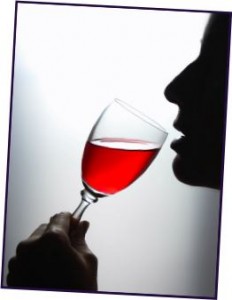Yesterday, I shared a script I wrote that, basically, said:
Les Bourgeois is a great place to spend time with friends in a fantastic atmosphere! Experience the Les Bourgeois experience at a place that’s second-to-none! For all your get-together needs, try us.
Only … I didn’t write that.
But I’ve read and heard the equivalent about a bazillion times.
Haven’t you?
Yes, I actually heard “experience” used as both noun and verb in the same sentence.
 Next time – want to help your message go down a little more smoothly? Help your audience savor your sweet somethings by using words that reinforce the mental pictures you’re trying to paint.
Next time – want to help your message go down a little more smoothly? Help your audience savor your sweet somethings by using words that reinforce the mental pictures you’re trying to paint.
Here’s what Les Bourgeois said instead:
Aren’t the best afternoons and evenings spent simply … poured out through the shared lazy expectations of nothing more potent than the telling … and re-telling … of stories, laughs, and lies?
For reunion and communion, there’s no greater gift. A vintage moment of lazy … framed by a setting that could only be harvested by the hands of time?
In just two short graphs, how many words reinforce the idea of wine?
- “poured”
- “potent”
- “communion”
- “vintage”
- “harvested”
All atypical choices – yet they not only fit contextually, they also help to reinforce that which we’re promoting: the elevation of a shared experience through wine.
The next time you want to spice up your copy?
Start with your verbs.
Can you replace a yawning verb or three with better, more relevant-yet-atypical choices that sharpen your sequence of mental images?
Next, look at your modifiers.
A few choice modifiers – vintage, potent – can go a long way. Most typical modifiers – great, fantastic – waste your audience’s time because they’ve long since been watered down of any real meaning through overuse.
In fact, go through your piece of copy.
Whack the dullard modifiers.
Read it again once whacked. Does it lack punch? Revisit the verbs. Insert some tasty ones.
You just breathed new life into your flat copy. Cheers.

Leave a Reply